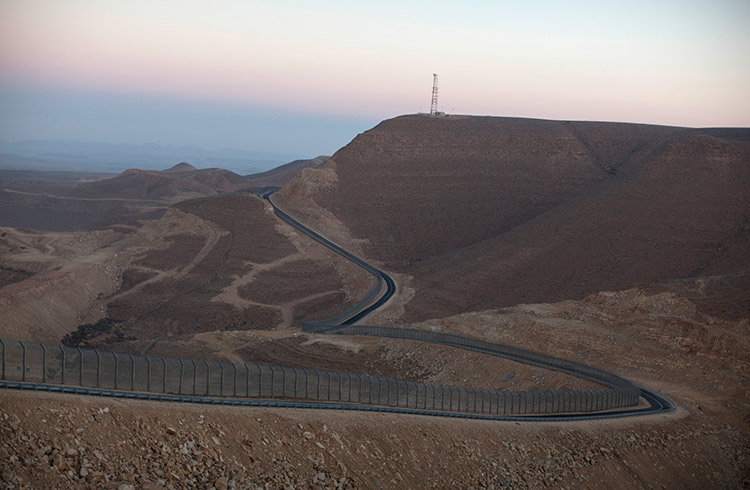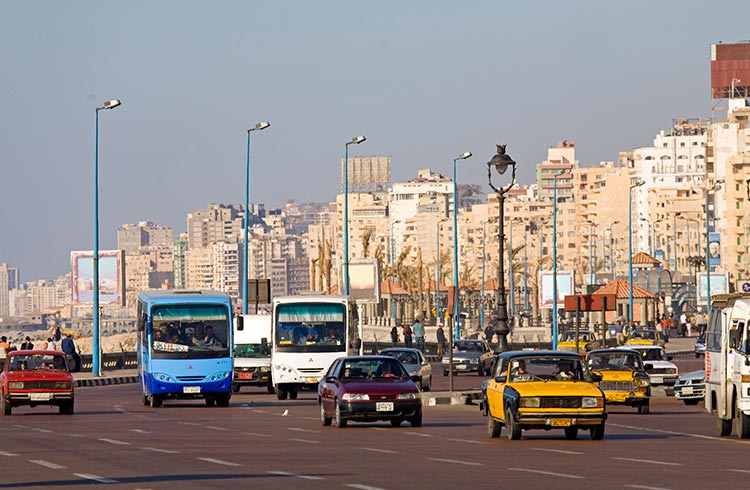Border Crossing Dangers in Egypt: How to Stay Safe
Egypt's borders are not safe places to go. From Israel and Palestine in the east to Libya in the west and Sudan in the south, this is what you need to know before you go anywhere near Egypt's borders.
 Photo © Getty Images/PW PIX
Photo © Getty Images/PW PIX
If you did go anywhere near these borders, soldiers are patrolling in full camoflage, body armour and holding AK-47s. These border regions are unsafe, just like the countries themselves surrounding Egypt.
Border hot spots
The border with Gaza is a centre for Israeli-Palestinian conflict, and the Libyan border is dubious at best due to Islamic terrorist organisations in the country to the west.
Decades of intra-cultural strife has made Sudan one of the hotspots of African violence in recent history, and Egypt's strong military wants none of that to spill over into Egypt.
Nevertheless, the borders represent the areas that are least Egypt-like and most like other nations. The Libyan border to the west, the Israel/Gaza border to the east and the Sudan border to the south represent safety risks that every well-informed traveller should know.
The eastern border: Israel and Palestine
The Sinai province in Eastern Egypt, just west of the Palestinian territories, plays a crucial role in the peace process between the Palestinians and Israel.
The military, backed by the U.S., has been a crucial ally of Israel over the past few decades. This partnership has not been without its grumblings however, especially in the province of Sinai itself. The people living here feel more cultural connection with Palestine than other parts of Egypt, and with the resignation of Hosni Mubarak in February 2011, people expect the relationship between Israel and Egypt to cool.
While the army has maintained that there will be no change in official policy, experienced analysts suggest that border control will be more lax.
This means that extremist activity in Sinai is likely to be higher than usual.
Israelis and others of Jewish descent can enter Sinai and the eastern border of Egypt however caution is recommended, as Muslim extremists will be attempting to get arms, food and supplies into the hands of Palestinians. Because Israel has recently been following hard-line policies that cause consternation for Muslims both moderate and radical, it goes without saying that visitors to Sinai should not publicly express support for Israeli policy. The Israeli victory in 1967 and subsequent military occupation for twelve years is still a sore spot for many in Sinai.
The southern border: Sudan
Somewhat lost in the news of politics throughout the Middle East and North Africa was the creation of a new state in Sudan.
Southern Sudan voted by referendum to split from Northern Sudan in January 2011. This caused tension in the area, with local groups expressing concern on behalf of the state of the country and the military making sure that they didn't get involved in the conflict.
The majority of the southern border won't be of interest to many travellers, but the village of Abu Simbel is home to a number of important cultural treasures. The Temple of Ramses II as well as a number of historical and religious monuments, are some of the most often-visited locations in Egypt.
First of all, you need to apply for a permit to travel near the border from the Ministry of the Interior. You may not even get one in this time of governmental transition, and if you show up without one you might have some explaining to do.
If you do manage to get a permit, you will find that things move at a different pace along the Southern border. Dust covers the streets and the skies are stark and wide open. People are less likely to ask you for tips and more likely to look at you strangely.
Due to the recent issues in Sudan, you may be asked for identification more frequently. The good news is that the majority of the recent civil unrest has been confined to the northern half of Egypt; the bad news is that this means there may not be quite as many army personnel making sure the border is secure. It is strongly recommended that you travel with a group or at least a friend, and be sure to keep your head down and don't make your presence known too strongly. The lawlessness of the area means that bandits and armed groups may cause problems.
The western border with Libya
As of March 11, 2011, there is a civil war going on in Libya that many international observers believe will last for quite some time.
It goes without saying that you will need a permit from the Egyptian Ministry of the Interior if you wish to travel to or near the Libyan border. Chances are you won't even get one, as the less the Egyptian interim military government has to deal with Westerners in the area, the better. They are more concerned with keeping the violence in Libya from spreading into Egypt.
It is strongly, strongly recommended that you don't visit the western border of Egypt at this time. Tribal authorities and military personnel clash regularly, and with the threat of civil war to the west, there really isn't any reason you as a Westerner should be in the area.
This area represents the heart of the flux going on in Arab culture now, and the culture shock, let alone the physical danger your position as an outsider puts you in, may be far too much for you to handle.
A word of caution
All three borders of Egypt are dangerous places. Each has its own issues. Authority in the country is centred around the Nile, in cities like Alexandria and Cairo. These border regions are essentially lawless by culture, tempered by more severe military law than in the cities.
You have to have all of your papers in order before you even think about visiting any these areas, and with the recent upheaval in Egyptian government, you may not even be able to get permits to visit at this time. Better to put off those border trips until when the country settles down again.
Related articles
Simple and flexible travel insurance
You can buy at home or while traveling, and claim online from anywhere in the world. With 150+ adventure activities covered and 24/7 emergency assistance.
Get a quote
No Comments